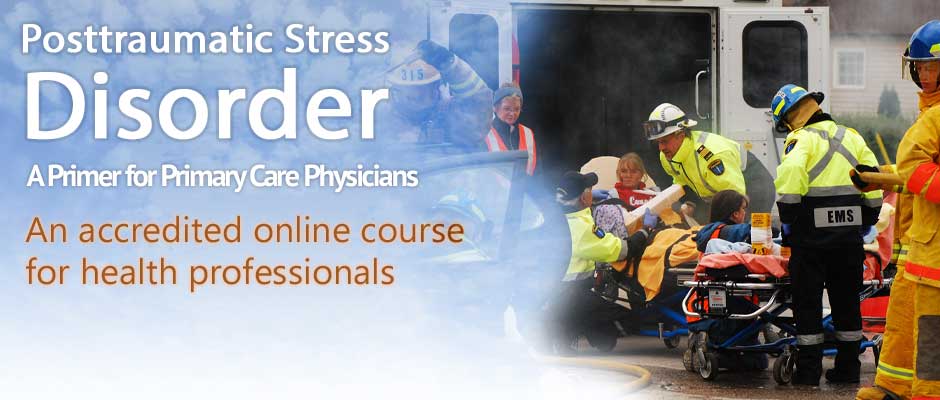Course Information
Posttraumatic Stress Disorder: A Primer for Primary Care Physicians

This program will help you recognize PTSD and the strategies available to help provide care to patients with this condition. The content in this CPD program is evidence-based and in accordance with the preferred learning formats identified by physicians. This course integrates didactic teaching, case-based scenarios, self-assessment, and discussion with fellow participants.
- Define posttraumatic stress disorder (PTSD) and recognize the signs and symptoms of PTSD according to DSM-5 criteria;
- Describe the mental disorders, physical disorders, and behavioral problems that are often comorbid with PTSD;
- Explain the rationale and principles of trauma-informed care, and strategies for its delivery;
- Propose appropriate pharmacological and psychotherapeutic treatment for PTSD; and
- Identify online and other resources for patients suffering from PTSD and recognize the value of these resources to augment treatment of the patient.
This continuing professional development (CPD) program has been designed to consider the CanMEDS Physician Competency Framework, including the roles of: Medical Expert, Communicator, Collaborator, and Health Advocate.
This project was made possible through the support of an unrestricted educational grant provided by Health Canada to the Mood Disorders Society of Canada (MDSC) and the project partners, including the Mental Health Commission of Canada (MHCC) and the Canadian Depression Research and Intervention Network (CDRIN).
Course Registration
You must have an MDcme.ca account and be logged in to register for this course
Credits
-
(up to) 3 credit hours
Expiry Date
This course expires on
Monday, December 18, 2017
Maintenance of Certification (Section 1)
This event is an Accredited Group Learning Activity (Section 1) as defined by the Maintenance of Certification program of The Royal College of Physicians and Surgeons of Canada, and approved by Memorial University of Newfoundland. Up to 3 Section 1 credit hours can be claimed.
Mainpro+
This one-credit-per-hour Group-Learning program meets the certification criteria of the College of Family Physicians of Canada and has been certified by the Office of Professional & Educational Development, Faculty of Medicine, Memorial University for up to 3 Mainpro+ credits.
Course Author(s):
- Catherine C. Classen, PhD, CPsych
- Lieutenant Colonel Alexandra Heber, MD, FRCPC, CCPE
Planning Committee:
- Noreen Fardy, MD, CCFP
- Diane Hawthorne, MD, CCFP, FCFP
- Sahar Iqbal, MD, MSc, FRCPC, FACP
- Micheline Jaworski, RN, B.A., B.Ed.
- Stephen Major, MD, CCFP, FCFP
- Daniel Ngui, MD, CCFP, FCFP

